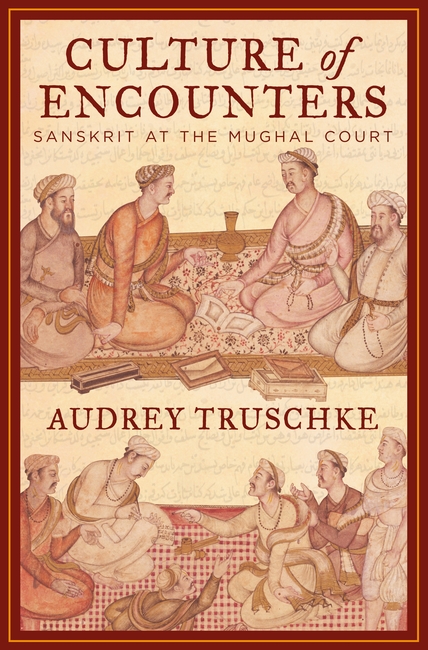
© 2020 Penguin India

Told by the authority on the subject, Culture of Encounters gives us insight into how and why the Mughals-one of the most powerful imperial powers-poured immense energy into drawing Sanskrit thinkers to their courts, adopted and adapted Sanskrit-based practices, translated dozens of Sanskrit texts into Persian, and composed Persian accounts of Indian philosophy. Beginning with the invitation of Brahman and Jain intellectuals to King Akbar’s court, this incisive work details the numerous, Mughal-backed texts they produced under emperors Akbar, Jahangir, and Shah Jahan.
These cross-cultural encounters created a dynamic idea of Mughal rule essential to the empire’s survival. Many works, including Sanskrit epics and historical texts, were translated into Persian, elevating the political position of Brahmans and Jains and cultivating a voracious appetite for Indian writings throughout the Mughal world.
The first book to read these Sanskrit and Persian works in tandem, Culture of Encounters recasts the Mughal Empire as a multi-lingual state that collaborated with its Indian subjects to establish its role as an Indian empire. Revisiting a forgotten part of India’s history, Audrey Truschke certifies the critical role of the sociology of empire in building the Mughal polity, which came to shape the literary and ruling cultures of early modern India forever.
Imprint: India Allen Lane
Published: Mar/2016
ISBN: 9780143428909
Length : 384 Pages
MRP : ₹699.00
Imprint: Penguin Audio
Published:
ISBN:
Imprint: India Allen Lane
Published: Mar/2016
ISBN: 9789385890819
Length : 384 Pages
MRP : ₹699.00
Told by the authority on the subject, Culture of Encounters gives us insight into how and why the Mughals-one of the most powerful imperial powers-poured immense energy into drawing Sanskrit thinkers to their courts, adopted and adapted Sanskrit-based practices, translated dozens of Sanskrit texts into Persian, and composed Persian accounts of Indian philosophy. Beginning with the invitation of Brahman and Jain intellectuals to King Akbar’s court, this incisive work details the numerous, Mughal-backed texts they produced under emperors Akbar, Jahangir, and Shah Jahan.
These cross-cultural encounters created a dynamic idea of Mughal rule essential to the empire’s survival. Many works, including Sanskrit epics and historical texts, were translated into Persian, elevating the political position of Brahmans and Jains and cultivating a voracious appetite for Indian writings throughout the Mughal world.
The first book to read these Sanskrit and Persian works in tandem, Culture of Encounters recasts the Mughal Empire as a multi-lingual state that collaborated with its Indian subjects to establish its role as an Indian empire. Revisiting a forgotten part of India’s history, Audrey Truschke certifies the critical role of the sociology of empire in building the Mughal polity, which came to shape the literary and ruling cultures of early modern India forever.
Audrey Truschke is a historian, author and activist. She is associate professor of South Asian history at Rutgers University in Newark, New Jersey. She is the author of two award-winning books: Culture of Encounters: Sanskrit at the Mughal Court and Aurangzeb: The Man and the Myth. Her next book project is a sweeping history of India, from the Indus Valley Civilization to the twenty-first century. For her public-facing work and activism on issues in South Asia and the academy, as well as scholarly commentary, follow her @AudreyTruschke on Twitter and Facebook.
There were many layers to Aurangzeb, many things that inspired and moved his heart.
